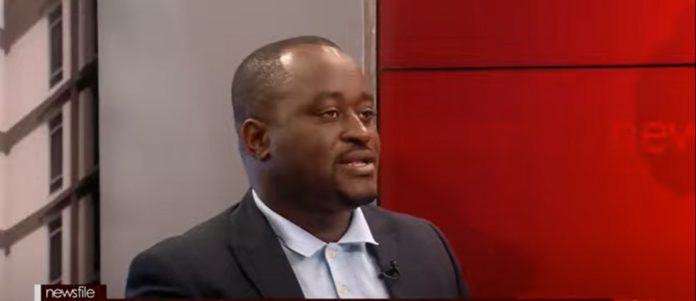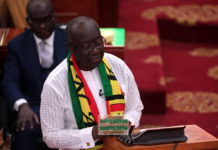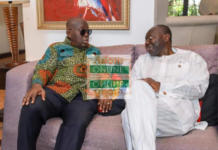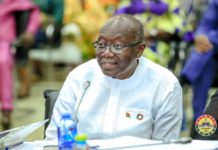
Political risk analyst and economist, Dr Theo Acheampong, has reiterated calls for the Finance Minister, Ken Ofori-Atta, to resign from his post.
Speaking on Newsfile on Saturday, he said that the calls for the minister’s resignation is not because he is not liked but because he has made serious policy mistakes which have impacted the livelihoods of many.
Dr Acheampong, listing some of the minister’s faults, said that “one is the E-Levy, number two on the fact that philosophically he doesn’t support us going to the IMF.”
“So if it is something you don’t want to do and you are fundamentally against then why are you the one leading us and driving that negotiation? If I were him I would have resigned,” he added.
The Economist added that there is a crisis manifesting itself across all facets of social and economic life; noting that people no longer trust the Finance Minister.
“The finance minister has lost a bit of that credibility within the market and financial ecosystem. In the midst of all of these policy vacuums and the fact that many market players don’t really put that much weight on the Finance Minister.”
This comes days after the cedi was cited by a Bloomberg report as the worst-performing against the dollar worldwide. The Ghana cedi also lost further grounds Friday morning to trade at ¢14.70 to the dollar, quotations from the forex bureaus indicate.
The free fall of the local currency is expected to pose a difficulty to Ghanaians with a fast depreciation being seen. Transport fares are also expected to increase following an increment in fuel prices.
Checks by JoyBusiness on October 16 indicated that some OMCs are selling a price of petrol per litre for ¢13.10, from the previous price of ¢11.10, about a 16% increase. Similarly, the price of diesel per litre shot up to about ¢15.99 from the previous price of ¢13.90. This is about a 12% surge.
These and many others have affected the livelihoods of Ghanaians over the past few weeks with many businessmen calling on the government for help.
Meanwhile, Dr Acheampong told the host, Emefa Apawu that the President needs to address the public about what steps the government is taking to resolve the issues.
“Amidst all these crises there is also some sort of information or policy vacuum, where that is feeding, to an extent, into even some of the issues or what we are seeing with the exchange rate. We need someone to speak to us in a more sort of credible and tangible manner,” he said.
Dr Acheampong added that “the president needs to speak to all of us forthrightly about the challenges that we face and about what they are doing to get us out of it. We have seen the president speak to us, particularly during the covid crisis. I think we are at the time where the president must address the nation.”





